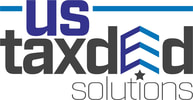Hot Topic: Navigating the World of Tax Lien Certificates and Tax Deeds
Investing in the real estate industry comes with a variety of options. Two such options that have gained significant attention among investors are Tax Lien Certificates and Tax Deeds. We aim to shed light on these two concepts and help tax deed investors make informed decisions.
Understanding Tax Lien Certificates
A Tax Lien Certificate is essentially a claim against a property due to unpaid property taxes. When property taxes become delinquent, the government auctions off a lien certificate to the highest bidder. This certificate gives the investor the right to collect interest on the delinquent property taxes. In essence, the investor is loaning money to the property owner to pay their tax debt. Over time, this investment could potentially become a superior lien, taking precedence over other liens placed on the property after the tax sale.
Delving into Tax Deeds
On the other hand, a Tax Deed allows an investor to purchase a property outright. This method is typically used as a means to profit from tax-delinquent real estate. When a property owner fails to pay their taxes, the government can sell the property itself, rather than just the lien. The investor then pays the delinquent taxes and in return, receives the property deed. This method transfers the ownership of the property with delinquent taxes to the new owner.
Tax Lien Certificates vs Tax Deeds: A Comparison
While both Tax Lien Certificates and Tax Deeds offer lucrative opportunities for real estate investors, they come with different risks and rewards. Tax Lien Certificates typically involve less risk as the investor does not own the property but has the right to collect the delinquent taxes along with interest. However, the process can be lengthy and the investor does not have control over the property.
In contrast, Tax Deeds offer the investor direct control over the property, as they become the new owner once the deed is purchased. Although this comes with higher risk, it also allows for greater potential profits, especially if the property's value increases over time.
Conclusion
In the end, the decision between investing in Tax Lien Certificates and Tax Deeds depends on the individual's risk tolerance, investment goals, and market knowledge. Both offer unique opportunities to profit from the real estate market and with careful consideration and due diligence, can form a part of a well-diversified investment portfolio. As always, it's recommended to seek professional advice when venturing into new investment territories.
#taxdeedinvestments #taxlienbuyers
Understanding Tax Lien Certificates
A Tax Lien Certificate is essentially a claim against a property due to unpaid property taxes. When property taxes become delinquent, the government auctions off a lien certificate to the highest bidder. This certificate gives the investor the right to collect interest on the delinquent property taxes. In essence, the investor is loaning money to the property owner to pay their tax debt. Over time, this investment could potentially become a superior lien, taking precedence over other liens placed on the property after the tax sale.
Delving into Tax Deeds
On the other hand, a Tax Deed allows an investor to purchase a property outright. This method is typically used as a means to profit from tax-delinquent real estate. When a property owner fails to pay their taxes, the government can sell the property itself, rather than just the lien. The investor then pays the delinquent taxes and in return, receives the property deed. This method transfers the ownership of the property with delinquent taxes to the new owner.
Tax Lien Certificates vs Tax Deeds: A Comparison
While both Tax Lien Certificates and Tax Deeds offer lucrative opportunities for real estate investors, they come with different risks and rewards. Tax Lien Certificates typically involve less risk as the investor does not own the property but has the right to collect the delinquent taxes along with interest. However, the process can be lengthy and the investor does not have control over the property.
In contrast, Tax Deeds offer the investor direct control over the property, as they become the new owner once the deed is purchased. Although this comes with higher risk, it also allows for greater potential profits, especially if the property's value increases over time.
Conclusion
In the end, the decision between investing in Tax Lien Certificates and Tax Deeds depends on the individual's risk tolerance, investment goals, and market knowledge. Both offer unique opportunities to profit from the real estate market and with careful consideration and due diligence, can form a part of a well-diversified investment portfolio. As always, it's recommended to seek professional advice when venturing into new investment territories.
#taxdeedinvestments #taxlienbuyers
|
Call us at: (561) 428-9695
|
Not quite ready to place an order?Sign up to receive updates and promotions. We won't sell your info nor spam your inbox. Your time and inbox space is valued, so we're strictly focused on providing useful communications.
|

